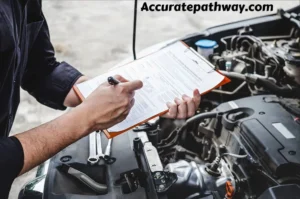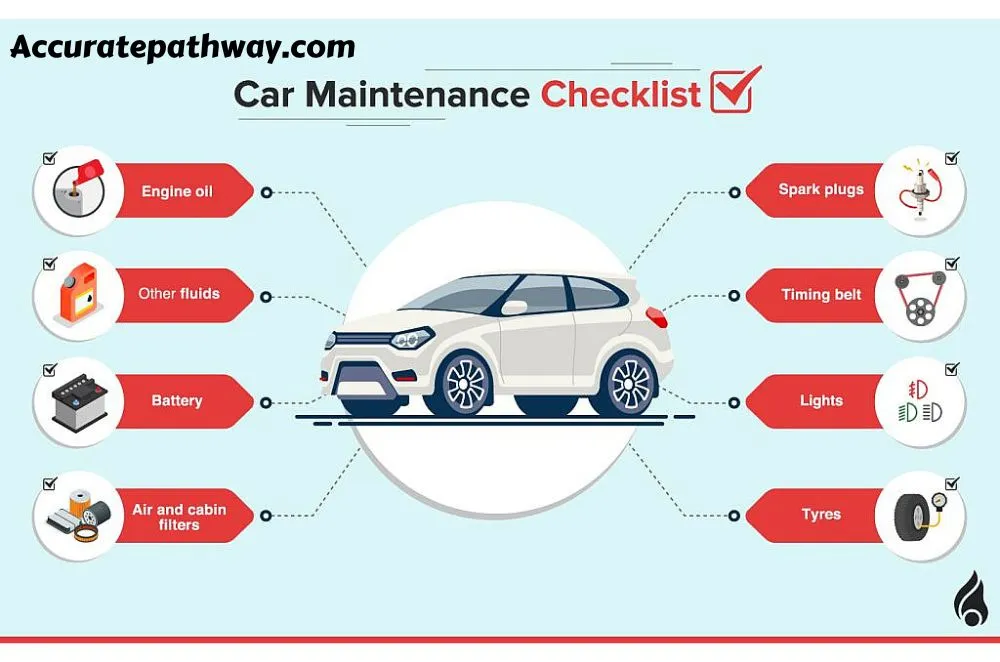1. Regular Oil Changes
Oil is the lifeblood of your engine, keeping all its components running smoothly. Follow the manufacturer’s recommendations for oil change intervals (typically every 5,000 to 7,500 miles). Regular oil changes prevent engine wear and improve fuel efficiency.
2. Check and Replace Filters
Air filters (engine and cabin) and fuel filters play crucial roles in your car’s performance and air quality inside the vehicle. Replace them as recommended or if you notice decreased performance or increased fuel consumption.
3. Inspect and Maintain Tires
Check tire pressure monthly and before long trips. Underinflated tires can reduce fuel efficiency and affect handling. Rotate tires regularly (every 5,000 to 7,500 miles) to ensure even wear and extend their lifespan. Replace tires when the tread depth is low to maintain traction and safety.
4. Brake System Maintenance
Regularly inspect brake pads, rotors, and brake fluid levels. Replace brake pads if they are worn out (usually every 25,000 to 70,000 miles, depending on driving habits). Addressing brake issues promptly ensures your safety and prevents damage to other brake components.
5. Battery Check
Keep the battery terminals clean and secure. Check the battery’s charge level and condition regularly, especially before extreme weather seasons. Replace the battery if it’s more than 3-4 years old or if you notice signs of weakness (slow cranking, dim lights).
6. Fluid Checks and Top-Ups
Apart from engine oil, regularly check coolant, transmission fluid, brake fluid, and power steering fluid levels. Low levels can lead to overheating, poor performance, or even serious damage. Top up as needed and flush and replace fluids as recommended by the manufacturer.
7. Inspect Belts and Hoses
Belts and hoses wear out over time and can cause significant problems if they fail. Inspect them regularly for cracks, fraying, or leaks, and replace them when necessary to prevent breakdowns.
8. Regular Cleaning and Waxing
Keeping your car clean isn’t just about aesthetics; it protects the paint and prevents rust. Wash your car regularly, especially in winter when salt and grime can cause corrosion. Waxing every 6 months provides an additional layer of protection.
9. Address Warning Signs Promptly
Pay attention to warning lights on your dashboard, unusual noises, or changes in how your car handles. These could indicate underlying issues that, if addressed early, can prevent more extensive and costly repairs later.
10. Follow the Owner’s Manual
Your car’s owner’s manual is your best friend for maintenance schedules and specific recommendations from the manufacturer. Following these guidelines ensures you’re taking the best care of your vehicle.

Benefits of Proper Car Maintenance
Proper car maintenance offers numerous benefits that enhance both the performance and longevity of your vehicle, as well as your overall driving experience. Here are the key advantages:
1. Improved Safety:
Safety is paramount when it comes to driving. Regular maintenance ensures that crucial components such as brakes, tires, lights, and steering are functioning correctly. This reduces the risk of accidents caused by mechanical failures and ensures your car responds as expected in emergency situations.
2. Reliability and Reduced Breakdowns:
A well-maintained car is more reliable. It’s less likely to leave you stranded due to unexpected breakdowns or failures. By addressing issues early through regular inspections and servicing, you prevent minor problems from escalating into major repairs that could sideline your vehicle for extended periods.
3. Extended Vehicle Lifespan:
Just as regular exercise and check-ups promote human health, routine maintenance prolongs the life of your car. Regular oil changes, fluid top-ups, and timely replacement of worn-out parts like belts and filters keep your engine and other systems running smoothly. This reduces wear and tear and prevents premature aging of your vehicle.
4. Improved Fuel Efficiency:
Properly maintained vehicles operate more efficiently. For instance, keeping tires properly inflated, replacing clogged air filters, and ensuring the engine is running smoothly through regular tune-ups can improve fuel economy. This saves you money at the pump and reduces your carbon footprint.
5. Maintained Resale Value:
Cars that have been well-maintained typically retain higher resale values. Potential buyers are willing to pay more for a vehicle with documented maintenance records, as they perceive it to be more reliable and less likely to have hidden issues. Regular servicing also helps maintain the car’s appearance and condition, further enhancing its marketability.
6. Legal Compliance:
Some aspects of car maintenance, such as ensuring lights, brakes, and emissions systems are in proper working order, are necessary to comply with legal requirements. Regular maintenance helps you avoid fines or penalties for driving with faulty equipment.
7. Enhanced Driving Comfort:
A well-maintained car provides a smoother, quieter, and more comfortable driving experience. Addressing issues such as squeaky brakes, vibrations, or strange noises promptly ensures that you and your passengers enjoy a pleasant journey without distractions or discomfort.
8. Peace of Mind:
Knowing that your vehicle is in good condition gives you peace of mind. You can drive confidently, knowing that you’ve taken proactive steps to ensure your safety and the reliability of your car. This reduces stress and allows you to focus on enjoying the road ahead.
Conclusion
Investing time and resources in proper car maintenance is a wise decision that pays off in numerous ways. From safety and reliability to cost savings and enhanced resale value, maintaining your vehicle regularly is essential for a trouble-free driving experience. By staying proactive and following manufacturer guidelines, you not only extend the life of your car but also ensure that it performs at its best for years to come.
SEE MORE;
